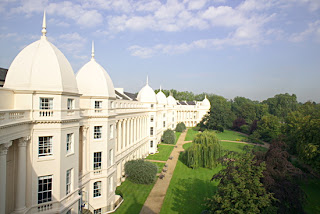The main faculties at CUHK are:
- Faculty of Arts
- Faculty of Business Administration
- Faculty of Education
- Faculty of Engineering
- Faculty of Medicine
- Faculty of Social Science
- Faculty of Science
- Faculty of Law
- The Graduate School
Ratings and Rankings:
- Placed among the World's Top 50 institutions in the Times Higher Education - QS World University Rankings, it is ranked 46th in 2009, 42nd in 2008, 38th in 2007 and 50th in 2006.
- Placed among the world's top 100 in a number of academic disciplines in THE-QS Subject Rankings 2009, ranked 58th in Social Sciences, 67th in Arts & Humanities, 68th in Life Sciences & Biomedicine, and 78th in Engineering & Information Technology.
- 2nd in Asia in the QS.com Asian University Rankings 2009.
- 8th in the ranking of Top universities in Asia by Webometrics 2009.
- Ranked 23-41st among the Top 100 institutions in Asia by Shanghai Jiao Tong University's Academic Ranking of World Universities (ARWU) 2008.
- 9th in the ranking of Top EMBA programs by Whitefield Consulting Worldwide 2008.
- 15th in the ranking of Top 85 Executive MBA (EMBA) programs by the Financial Times 2006.
- 96th globally in the Newsweek ranking of top 100 global universities 2006.
- 44th in the 2004 ranking of World Top 50 Universities in Subdiscipline Financial Economics (The econphd.net rankings).
- 6th among the Top Business Schools in Asia Pacific (International Education Commission 2003).
- No. 1 among the Top Business Schools in East Asia (Asia Inc, Hong Kong, 2003).





 3:16 PM
3:16 PM
 Alberto Pavanello
Alberto Pavanello



























